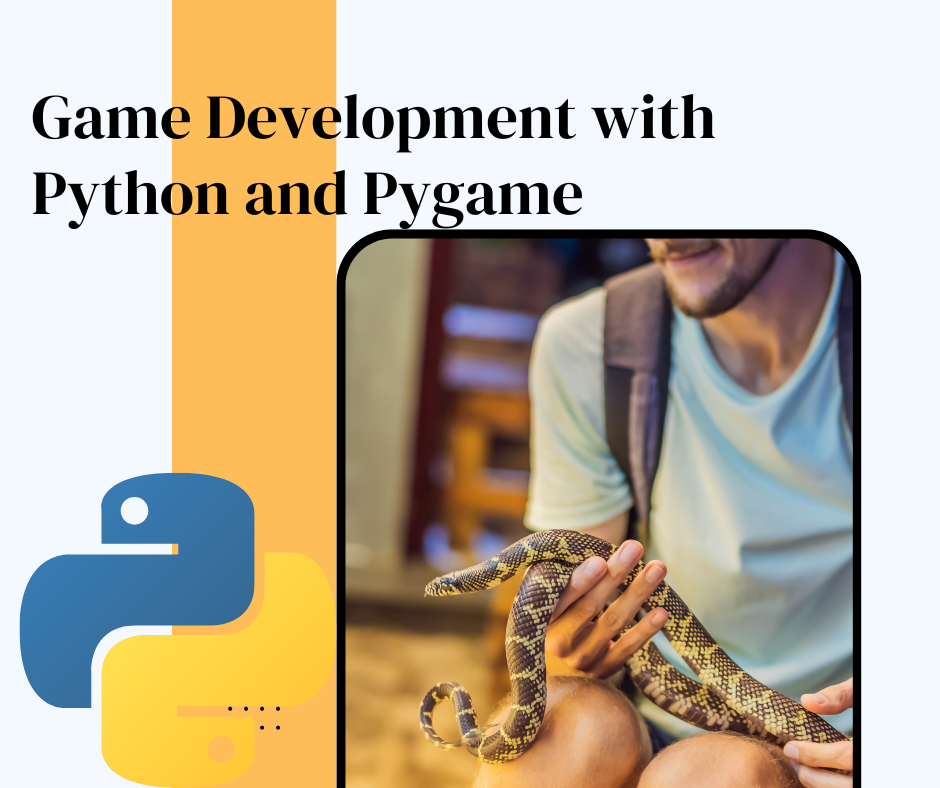Game Development with Python and Pygame
 Ruhi Parveen
Ruhi Parveen
Introduction:
Python is a versatile and beginner-friendly programming language that is widely used in various fields, including game development. Pygame is a set of Python modules designed for writing video games, making it a popular choice among developers. This article explores the basics of game development with Python and Pygame, covering key concepts and techniques to help you get started on your game development journey.
Getting Started with Pygame:
Before diving into game development with Pygame, you'll need to install Python and Pygame on your computer. Python can be downloaded from the official Python website, while Pygame can be installed using Python's package manager, pip. Once you have Python and Pygame installed, you can start creating your first game.
Creating a Simple Game:
To create a simple game with Pygame, you'll first need to set up a basic game window. This can be done using Pygame's pygame.init() and pygame.display.set_mode() functions. Once you have a game window, you can start adding elements to your game, such as sprites, backgrounds, and game logic.
Adding Sprites and Images:
Sprites are objects in a game that can move around the screen. In Pygame, sprites are represented by the pygame.sprite.Sprite class. You can create your own sprites by subclassing the Sprite class and adding images to them using the pygame.image.load() function. Once you have your sprites set up, you can add them to your game window using the pygame.sprite.Group class.
Implementing Game Logic:
Game logic is what drives the behavior of your game. This includes things like player movement, collision detection, and scoring. In Pygame, you can implement game logic using Python's built-in control structures, such as loops and conditional statements. For example, you can use a loop to continuously update the position of a sprite based on user input or game events.
Handling User Input:
User input is an essential part of any game. In Pygame, you can handle user input using the pygame.event.get() function, which retrieves a list of all the events that have occurred since the last frame. You can then iterate through this list to check for specific events, such as key presses or mouse clicks, and respond accordingly.
Adding Sound and Music:
Sound and music can greatly enhance the gaming experience. Pygame provides a simple way to add sound effects and music to your game using the pygame.mixer.Sound and pygame.mixer.music modules. You can load sound files using the pygame.mixer.Sound class and play them in response to specific events in your game.
Optimizing Your Game:
As you develop your game, it's important to optimize its performance to ensure smooth gameplay. This can be done by minimizing the use of resources, such as memory and CPU, and optimizing your code for speed. Pygame provides several tools and techniques for optimizing your game, such as using hardware acceleration and reducing the number of sprites on the screen.
Publishing Your Game:
Once you've completed your game, you can publish it to share it with others. Pygame allows you to create standalone executable files for Windows, macOS, and Linux, making it easy to distribute your game to a wide audience. You can also share your game online through platforms like itch.io or Steam.
Conclusion:
Game development with Python and Pygame offers a fun and accessible way to create your own video games. By mastering the basics of Pygame and experimenting with different techniques, you can unleash your creativity and bring your game ideas to life. Whether you're a beginner or an experienced developer, Python and Pygame provide a powerful platform for game development that is both rewarding and enjoyable. For Python Training Institute in Lucknow, Indore, Delhi, Noida, and all cities in India, individuals can explore reputable institutes that offer comprehensive courses in Python programming to build a strong foundation for game development.
Subscribe to my newsletter
Read articles from Ruhi Parveen directly inside your inbox. Subscribe to the newsletter, and don't miss out.
Written by

Ruhi Parveen
Ruhi Parveen
I am a Digital Marketer and Content Marketing Specialist, I enjoy technical and non-technical writing. I enjoy learning something new.